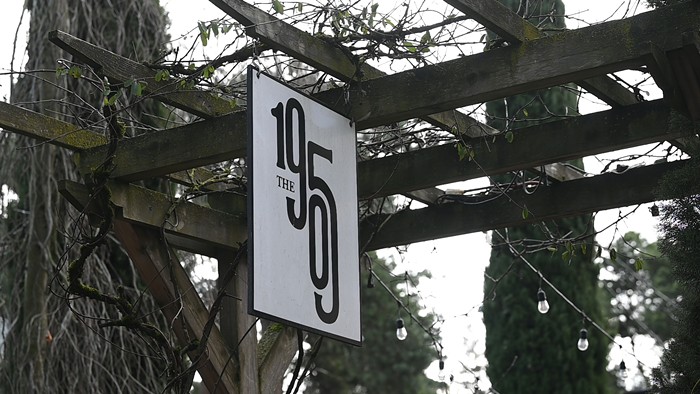Thurs Nov 11
Aladdin Theater
3017 SE Milwaukie
It was in 1999--the autumn of my 18th year--that Stephin Merritt irrevocably crushed me twofold. The first blow, of course, was in the form of 69 Love Songs, the sprawling, three-disc magnum opus of Merritt's most serious project, the Magnetic Fields. A self-aggrandizing anthology to Merritt's already renowned craft, the ripples of 69 Love Songs quickly eclipsed the rest of the Merritt catalog in both its scope and quality--rocketing the famously acerbic songwriter's name to the tips of nearly every imaginable tongue in the music industry, a notoriety which he volleyed into major-label record deals and soundtracks for Katie Holmes movies.
But back before all of that, there was just me, my sparsely decorated squalor of an apartment, and three discs that--to put it dramatically--saved my life. I had a passive interest in Merritt's work before this point, had noted his astonishing linguistic prowess in his previous works--but none prepared me for 69, which single handedly turned me into something of a Merritt obsessive. It was in the first few weeks of this fixation, whilst pouring over interview after misanthropic interview with the endlessly irked Merritt, that I met my second blow at his careful hand: Stephin Merritt used a rhyming dictionary.
It's an embarrassing acknowledgement in retrospect: the baby-sized study aid became a symbol of a personal affront to everything I so naívely expected from indie pop music--contrary to the pop of the mass media, love songs were meant to be heartfelt, sincere reflections of human emotion. It's offensive to suggest that I expected the hundreds and hundreds of Brill Building love songs Stephin Merritt had written for his numerous bands (Magnetic Fields, Future Bible Heroes, Gothic Archies, the 6ths, et al) to transcend the means of their conception--to simultaneously span Irving Berlin AND Leonard Cohen--but it was a suggestion I must have been comfortable with at the time. I mean, a fucking rhyming dictionary?!?! How unbelievably crass! Love songs are meant to be something more than genre exercises with a few clever phrase turns, aren't they? Aren't they?!?!
Jumping forward a bit: I think it's safe to say that in the years that have passed between 69 Love Songs and i, 69's modest, one-disc follow-up, I have (for better or worse) sloughed off much of the musical and emotional naívety that led me to feeling personally betrayed by a reference book. I'm infinitely more cynical, discerning (if you can call it that), and yes, even mature by comparison, and yet still, I meet i's deftly reserved track list with a good deal of familiar suspicion. The record--his first for Warner subsidy Nonesuch--is an alphabetical song cycle (each song beginning, however arbitrarily, with the letter "I") of the typical Merritt variety show; a mixed bag of genre exercises that offer some of the writer's finest phrase turns to date. The quality is undeniable, but I still can't totally shake that cold feeling: aren't songs supposed to be more that that? I mean, if a song is essentially meaningless to its author (Merritt was recently quoted as saying "Sincerity has no place in popular music, any more than it has in cooking."), how can they be expected to mean anything to anyone?


















